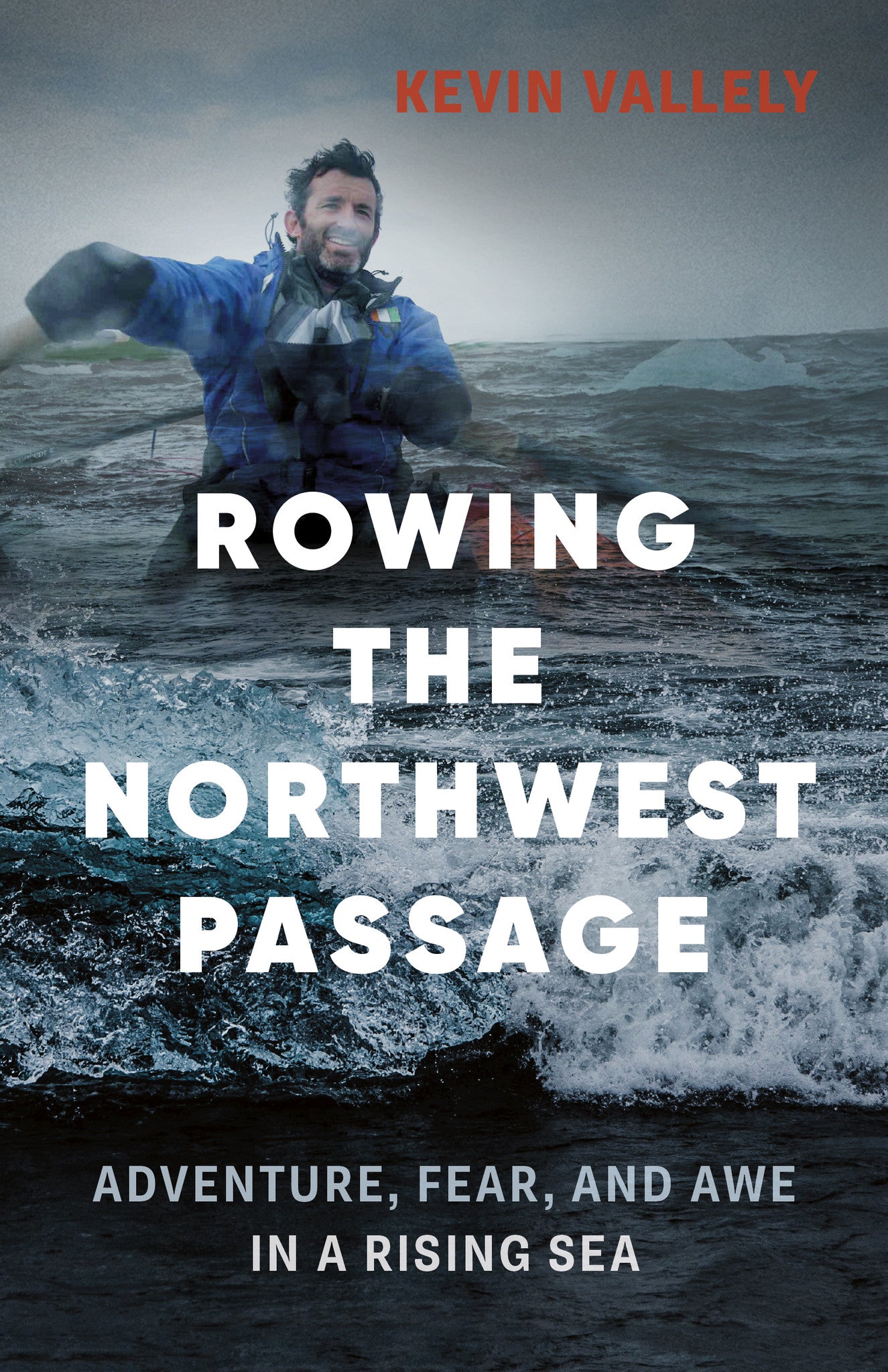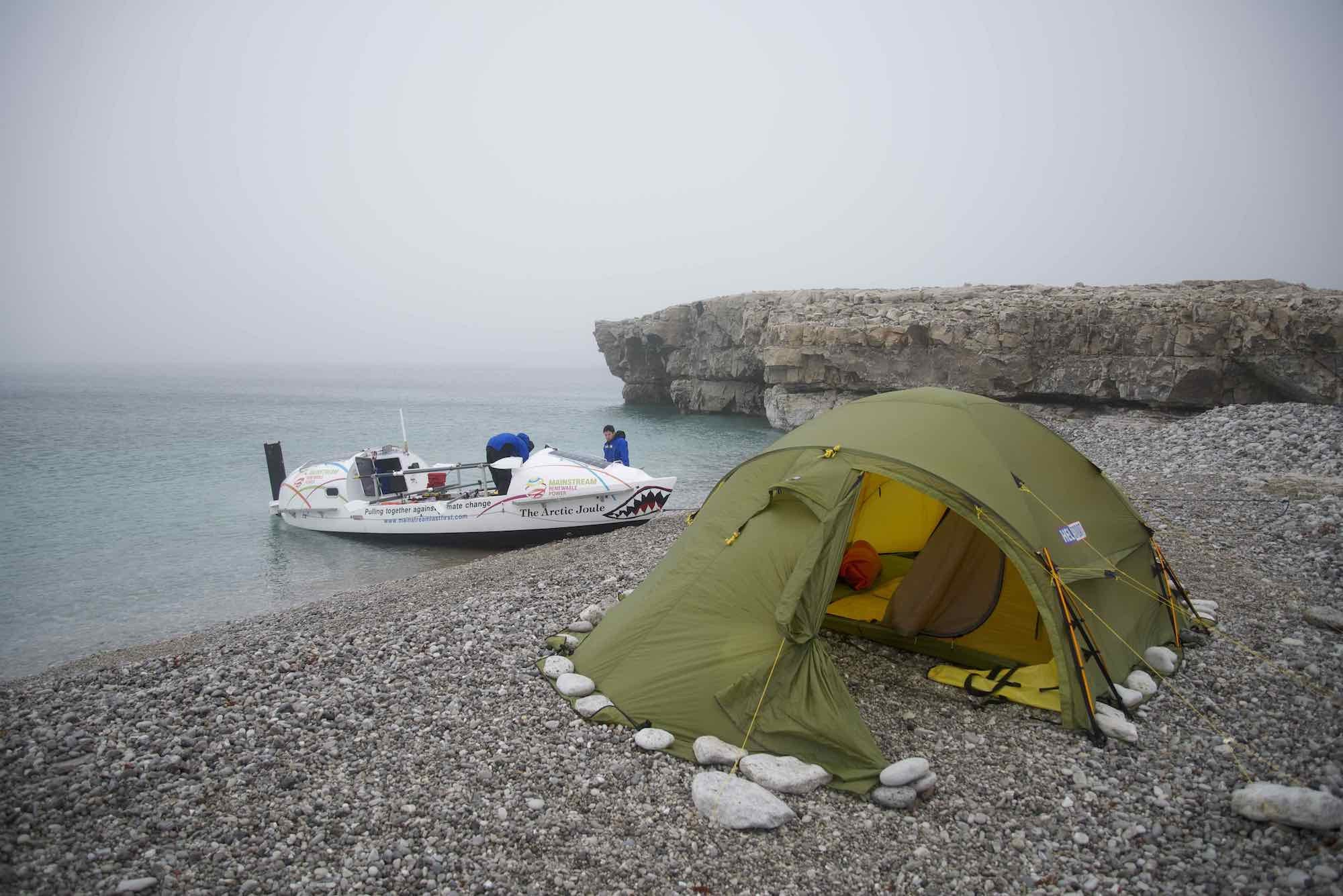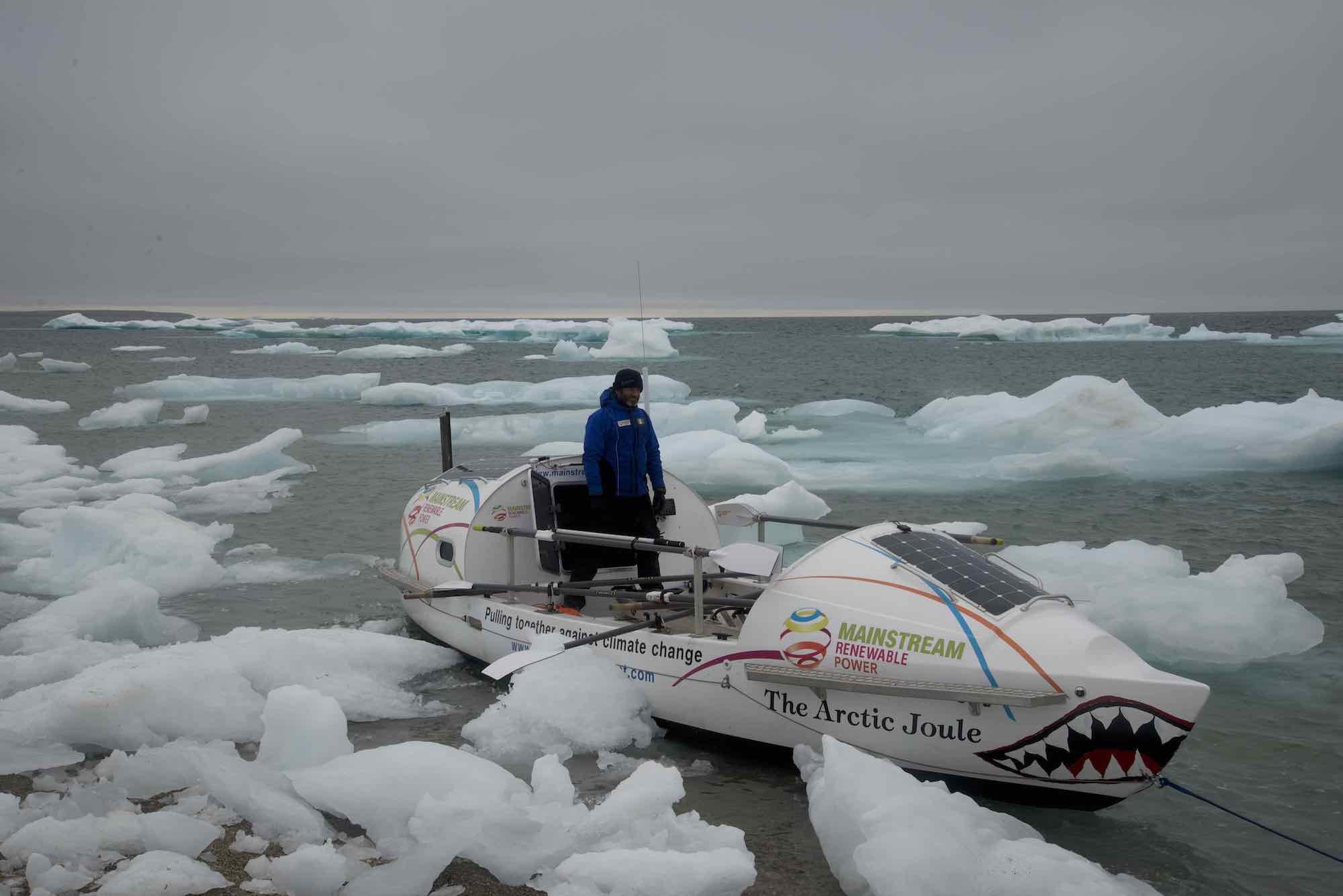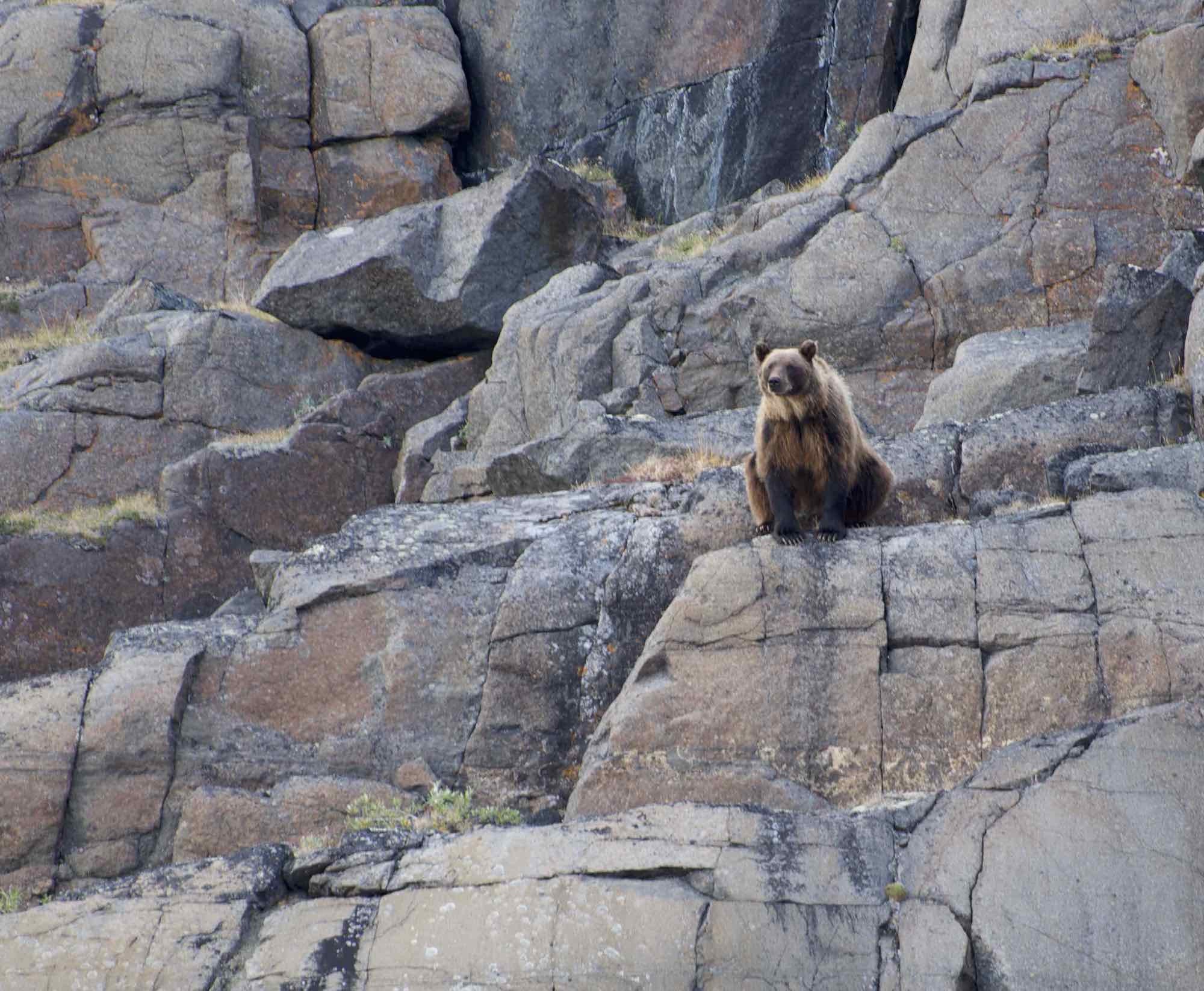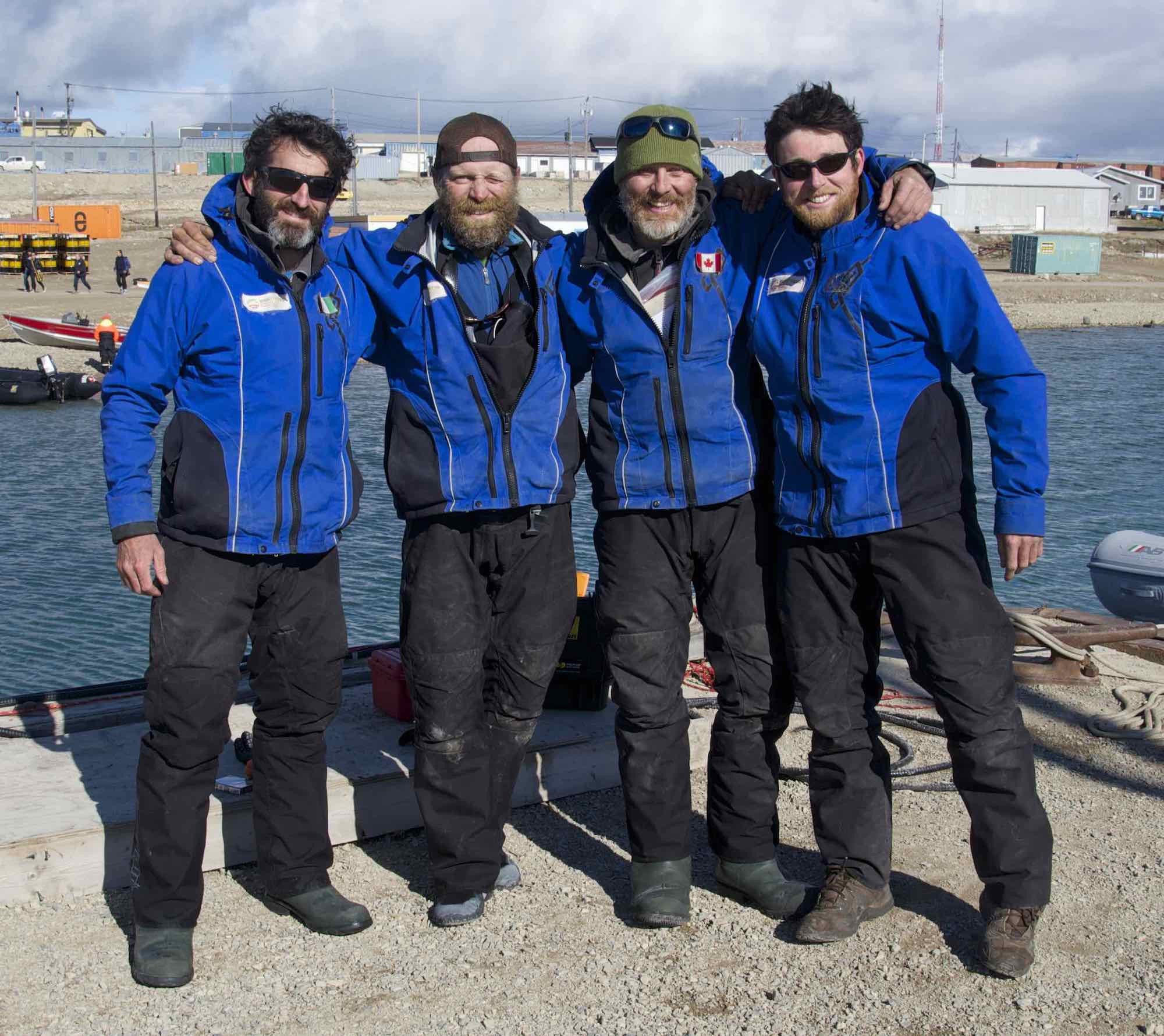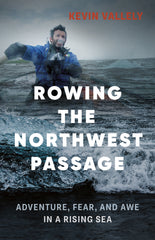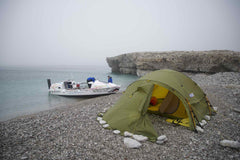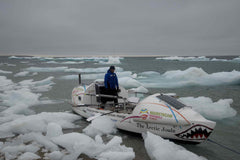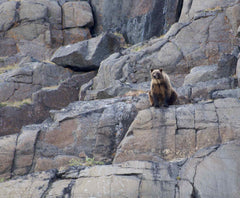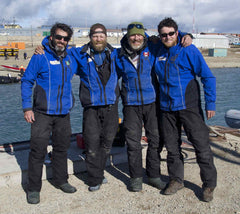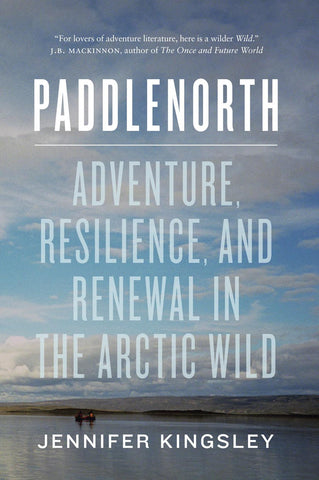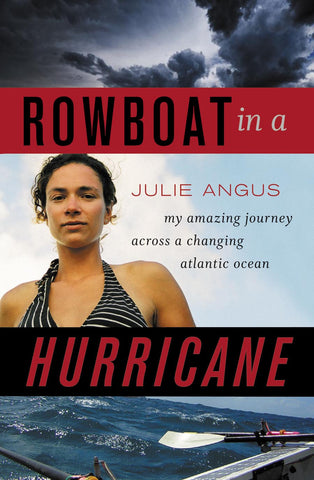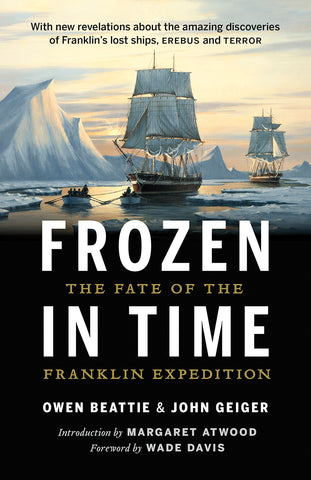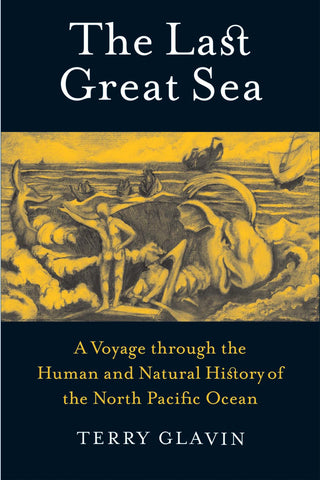Rowing the Northwest Passage
Adventure, Fear, and Awe in a Rising Sea
- ISBN: 9781771641340
- Tags: Adventure Travel, Audiobook Available, Biography & Memoir, Kevin Vallely, Nature & Environment,
- Dimensions: 5.5 x 8.5
- Published On: 8/23/2017
- 224 Pages
- ISBN: 9781771641357
- Tags: Adventure Travel, Audiobook Available, Biography & Memoir, Kevin Vallely, Nature & Environment,
- Published On: 8/23/2017
- 224 Pages
Audiobook Available (Complete List from Greystone)
"Vallely transports the reader to places few will ever go: the very edges of the earth and of human endurance."
—Evan Solomon
In this gripping first-hand account, four seasoned adventurers navigate a sophisticated, high-tech rowboat across the Northwest Passage. One of the “last firsts” remaining in the adventure world, this journey is only possible because of the dramatic impacts of global warming in the high Arctic, which provide an ironic opportunity to draw attention to the growing urgency of climate change.
Along the way, the team repeatedly face life-threatening danger from storms unparalleled in their ferocity and unpredictability and bears witness to unprecedented changes in the Arctic habitat and inhabitants, while weathering gale-force vitriol from climate change deniers who have taken to social media to attack them and undermine their efforts.
Kevin Vallely is an architect, adventurer and happily married father of two. He is a member of the Explorer’s Club and was an Explorer’s Club Flag recipient. In 2009 he and two teammates broke the world record for the fastest unsupported trek from the edge of the Antarctic continent to the Geographic South Pole.
"A thrilling adventure tale in which each hard mile not only reveals the strength of the human spirit but also hammers home the hard truths of climate change."
—Cameron Dueck, author of The New Northwest Passage
"A compelling page-turner of an adventure story. Rowing the Northwest Passage gave me a greater appreciation of the Arctic wilderness—just not as a place of brutal beauty, but also as a crucial player in the Earth’s ecosystem."
—Roz Savage, Guinness World Record-setting ocean rower
"Vallely transports the reader to places few will ever go: the very edges of the earth and of human endurance."
—Evan Solomon, host of CTV's Question Period
"A must-read for any Arctic or Northwest Passage enthusiast or for anyone concerned about our planet's future in the face of global warming."
—Captain Kenneth K. Burton, Executive Director, Vancouver Maritime Museum
“Climate change is happening so rapidly in the Arctic that it is absolutely essential that people go there and intelligently record what they see, as Kevin Vallely so compellingly does in Rowing the Northwest Passage.”
—Peter Wadhams, author of A Farewell to Ice
"Vallely’s book is as much a history lesson and thrilling travelogue as it is an ecological warning"
—Publishers Weekly
"A rousing combination of science and adventure in the Arctic."
–Booklist
From Chapter 1: A Last First
We rise and fall with the pulse of the ocean, but we’re blind
in this world of white. The steady rumble of surf to starboard
helps us navigate, and the sound of breaking waves feels ominous.
It’s not long before the echoes from the cape begin to
surround us—one moment to starboard, then to port, then
back to starboard again—and we become completely disoriented.
“We need to get away from these cliffs,” I yell to Frank.
“It’s too dangerous this close to the cape.” The sound of breaking
waves envelops us. “We’re spinning in circles,” Frank says after
checking the GPS. “We’re caught in a current or something.”
We try everything to right ourselves, but it’s hopeless; our
boat is gripped by an invisible force and we can’t regain control.
In the confusion we fail to notice the building wind until
it explodes upon us, driving us straight out to sea. Just offshore,
about six miles away, sits the pack ice, and we’re now headed
straight for it. If we reach it, we’ll be crushed.
I clamber into the cabin and check the navigation screen
of our onboard GPS. I wonder if we have space to outrun the
pack ice if we fight the wind and head south. The pack ice is big,
the winds are intensifying, and we don’t have control of the
boat. “Not likely,” I mumble. As I stare blankly at the navigation
screen, I see it. I hadn’t noticed it earlier on the handheld GPS,
but there appears to be an island between us and the pack.
Called Bear Island, it’s a mere speck, maybe a hundred yards
wide, but if we can make it there, we might save ourselves. It’s
our only chance.
We hold a straight line going southeast, 45 degrees to the
wind-driven waves, and start rowing for all we’re worth. The
seas continue to build and the fog remains thick. The waves are
hitting us hard to starboard as we battle cross seas to a point
several miles upwind from the island and make our turn. The
scream of the wind dies immediately and we start to glide with
it. “It’s like landing a paraglider on a postage stamp,” Frank
says, the only words we’ve shared in the last thirty minutes.
Surfing among the white-capped rollers, we race toward our
invisible island in the fog.
When we’re within a mile or two, I scream to Paul and Denis
to get out on deck. “Put on your dry suits, guys!” They scramble
out of the cabin, fully aware of what’s been unfolding. “Tell us
when you see the island,” I shout. It becomes obvious now that
facing backward in a rowboat can be very impractical at times.
“We’re four hundred meters out,” Frank yells (about four
hundred yards). “Do you see anything?”
“Nothing,” Paul replies.
A moment later, Frank yells, “Two hundred meters out.”
“Nothing,” Paul says. “Wait a moment, I think I see—”
We all hear it before we see it—the deep, resonating thud of
wave against cliff. I strain my neck over my left shoulder to see
Bear Island ringed in steep cliffs, huge waves, and little hope.
Our island refuge is no salvation at all.

